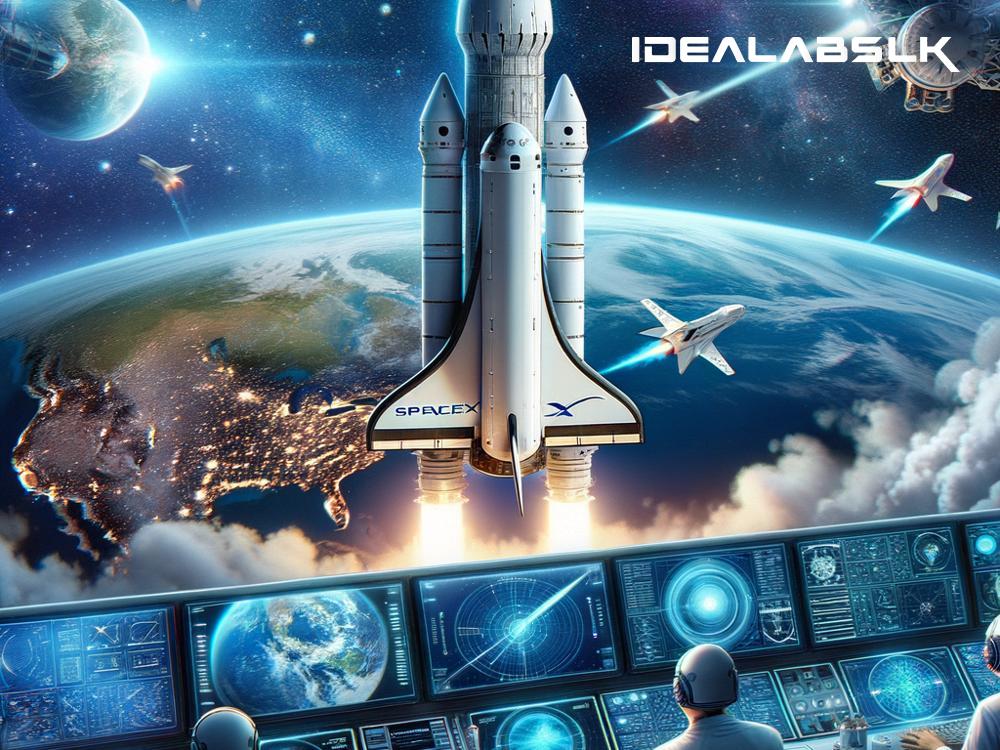How SpaceX is Making Space Travel Better with AI: A Peek into 2025’s Interplanetary Explorations
Space travel has always sparked our curiosity, and if there is one name synonymous with pushing its boundaries, it's SpaceX. But what’s making their missions to Mars and beyond even more thrilling in 2025? The answer lies in two words: Artificial Intelligence (AI). Let's delve into how SpaceX is using AI to make space travel and interplanetary exploration even more exciting and achievable by 2025.
AI: The Brain Behind the Missions
AI isn't just about robots taking over; it's about smart technology making decisions, solving problems, and learning from experience, much like a human but at an accelerated pace. SpaceX is leveraging AI in numerous ways to make their spacecrafts smarter, launches safer, and the dream of colonizing other planets more tangible.
1. Safer Launches, Smarter Landings
Every space mission starts with a launch, but not every launch goes as planned. In the past, many missions faced setbacks due to unpredictable weather, mechanical failures, or other unforeseen issues. By 2025, SpaceX has harnessed AI to predict potential launch problems before they happen, analyzing data from past launches and current conditions to ensure a safer takeoff. When it comes to landings, AI steps in again, guiding rockets back to Earth (or any other designated body) with precision that human hands and eyes could hardly match, making reusable rockets a reliable reality.
2. Autonomous Navigation: Finding the Way in Deep Space
Imagine driving in a place without GPS, road signs, or even a map. That's what space travel used to be like. Enter AI: the ultimate navigator for the vast ocean of space. By 2025, SpaceX's spacecrafts, equipped with AI, are capable of making split-second decisions, changing course in response to unexpected obstacles, and finding the most efficient paths to their destinations. This autonomy is crucial for missions heading to Mars or further, where communicating with Earth takes much longer and human guidance becomes impractical.
3. Keeping Astronauts Safe and Healthy
The journey and stay in space puts astronauts under unique stresses, with risks from radiation, muscle loss, and even the psychological effects of isolation. AI by 2025 plays a vital role in monitoring astronaut health, analyzing data from wearable sensors to predict and prevent health issues before they become serious. In case of medical emergencies, AI systems can provide recommendations, supporting astronauts when communication delays with Earth’s medical teams make real-time advice impossible.
4. Streamlining Interplanetary Research and Exploration
Exploring another planet is no small feat. It requires collecting and analyzing mountains of data, from soil composition to atmospheric conditions. AI helps here by sifting through data much faster than human scientists could, identifying patterns and making predictions. By 2025, rovers and drones, driven by AI, independently conduct experiments and explore terrains that might be too dangerous for humans, collecting valuable information for future colonization efforts without putting lives at risk.
5. Making Life on Mars a Reality
The dream of building a sustainable human presence on Mars or other celestial bodies hinges on countless complex tasks, from constructing habitats to managing resources. By 2025, AI technologies not only assist in designing and planning these structures but also in operating the machinery required to build them, often in harsh, unpredictable environments. Furthermore, AI systems are crucial for managing life support systems and resource allocation, ensuring a habitable environment for humans far from home.
In Conclusion
As we step into 2025, it’s clear that AI is no longer just a part of science fiction when it comes to space travel; it’s at the forefront of making interplanetary exploration a reality. SpaceX's integration of AI into their missions is paving the way for safer launches, autonomous navigation through the cosmos, ensuring astronaut well-being, accelerating scientific discoveries, and laying the groundwork for human life beyond Earth.
This blend of space exploration and AI is not just about reaching new planets; it’s about expanding our understanding of the universe and our place within it. The future of space travel is here, and it’s smarter, safer, and more exciting than ever, thanks to AI.

